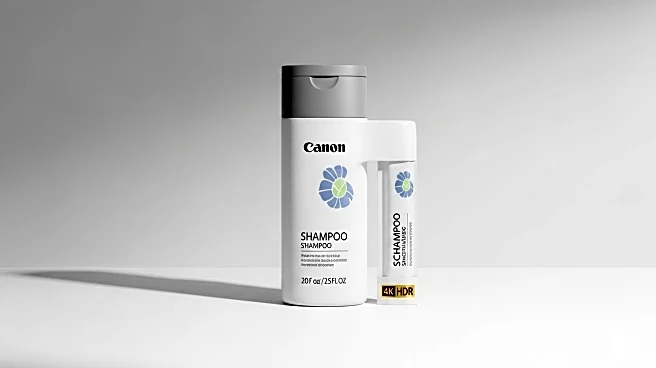What's Happening?
Amcor has launched its Exclusive stick, a refillable packaging solution for Cut by Fred's Detox Stick Shampoo. This innovation simplifies the refill process, eliminating the need for consumers to melt and manually transfer the refill. The Exclusive stick allows for easy insertion into the original pack, minimizing contact with the formula to prevent contamination. The packaging is made entirely from recyclable polypropylene, supporting sustainable practices. The design also enhances user experience with precision-made parts for accurate application. Cut by Fred's commitment to sustainability is furthered by offering refills that weigh significantly less than the original container, providing material savings and cost benefits.
Why It's Important?
The introduction of Amcor's Exclusive stick represents a significant step towards sustainable packaging solutions in the beauty industry. By reducing material usage and simplifying the refill process, it addresses consumer demand for environmentally friendly products. This innovation not only supports Cut by Fred's environmental goals but also sets a precedent for other companies to follow. The use of recyclable materials aligns with global sustainability initiatives, potentially influencing industry standards and consumer expectations. Companies adopting such practices may benefit from increased brand loyalty and market competitiveness.
What's Next?
Amcor's partnership with Cut by Fred may inspire other brands to explore similar sustainable packaging solutions. As consumer awareness of environmental issues grows, demand for eco-friendly products is likely to increase. This could lead to broader adoption of refillable packaging across various sectors. Amcor's B Circular portfolio may expand, offering more companies the opportunity to enhance their sustainability efforts. Regulatory pressures and consumer preferences may drive further innovation in packaging design, emphasizing recyclability and reduced environmental impact.
Beyond the Headlines
The shift towards sustainable packaging reflects broader cultural and ethical considerations. As consumers become more environmentally conscious, brands are compelled to align their practices with these values. This trend may influence not only packaging but also product formulation and corporate responsibility initiatives. The move towards mono-material construction highlights the importance of recyclability in reducing waste. Long-term, such innovations could contribute to significant reductions in plastic pollution and resource consumption, fostering a more sustainable future.








